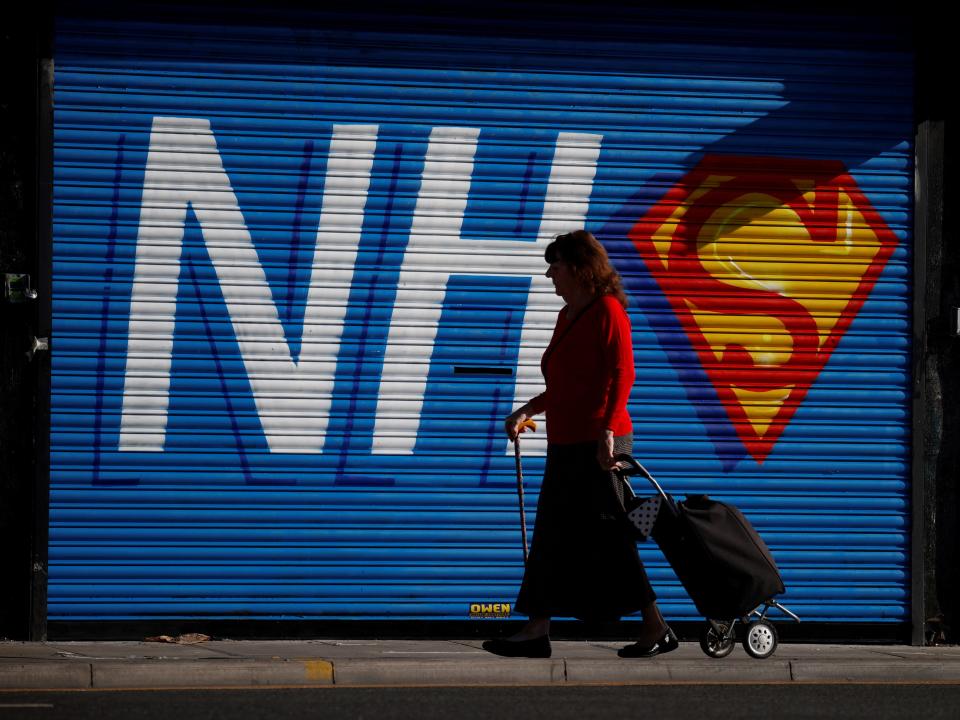Coronavirus tracking tech may be the best chance to stop the spread of the virus — but experts are worried solutions by Apple and Google won't be enough

Business Insider

Reuters
Apple and Google are building COVID-19 contact tracing tech that uses Bluetooth to notify people when they've come into contact with other users who have tested positive for coronavirus.
But critics say the technology — which is strictly opt-in and not mandatory — is unlikely to get enough users to work. A similar app already deployed in Singapore was only used by 15% of people.
And contact tracing serves little purpose unless testing is widely available. Most people in countries like the US and the UK still can't get coronavirus tests.
Critics also note that Google and Apple haven't clarified how they'll protect against trolling and other unreliable data.
In an unprecedented announcement last week, long-time competitors Apple and Google announced that they will partner to build a "comprehensive solution" for contact tracing to help governments across the world slow the spread of COVID-19.
The two companies' announcement focused heavily on how the contact tracing technology protects user privacy: without disclosing people's location, iOS and Android smartphones can use Bluetooth to sense other smartphones in close range and alert users directly when they've come in contact with a person who has self-identified as a carrier for coronavirus.
—Tim Cook (@tim_cook) April 10, 2020
But Cambridge computer science professor Ross Anderson said the privacy question is "a bit of a red herring" — a bigger concern, he said, is whether such contact tracing software will actually be helpful.
"First of all, I don't think it will work," Anderson told Business Insider.
Anderson specializes in cryptography and is one of a dozen experts convened by the UK government to give feedback on a similar contact tracing app being developed by the UK's NHS. He joins a chorus of security researchers and epidemiologists who have started to poke holes in the idea that contact tracing apps that rely on user participation will prove effective in the fight against coronavirus.
There is a slew of criticisms faced by contact tracing systems like the one Apple and Google are building.
The first, Anderson noted, is how quickly tech companies began developing these apps. "This is a complex problem of design of an overall system," he said. "Above all, what we need is for systems here to be designed and to be driven by epidemiologists, not by tech companies who see a bandwagon to jump on."
Representatives for Apple and Google did not immediately respond to requests for comment.
Crowdsourced contact tracing apps won't be useful unless a critical mass of people opt in.

In Singapore, one of the first countries to deploy a contact tracing app on an opt-in basis, only 12% of the population participated — meaning the vast majority of possible transmissions would be impossible to trace.
Around 50-70% of a population needs to use contact tracing apps in order for them to be effective, according to researchers at the contact tracing project Covid Watch. In the US, roughly 80% of people own a smartphone to begin with, meaning the vast majority of them would need to participate.
During call with reporters on Monday, Apple and Google addressed some of these concerns. They said they plan to convince people to opt into contact tracing by notifying them of potential exposure before they've even downloaded the apps.
Bluetooth works by easily recognizing other devices through thin walls and across short distances — that could lead to an excess of false positives on a contact tracing service.

"So you're standing as a law abiding citizen and the supermarket queue carefully keeping two meters away from the person in front or the person behind," Anderson said. "If you're all carrying this app on your phones, you'll be registering them as false contact events, right?"
Anderson also warned in a blog post last week that trolls could try to find loopholes in the software that would jeopardize its efficacy.
It's not clear how exactly companies like Apple and Google will build workarounds for false positives. On the call with reporters on Monday, the companies said they'd combat false positives by asking health agencies to give confirmed COVID-19 patients a one-time code to enter.
Apps could also include interfaces that ask people to manually confirm whether they're actually standing close to someone else each time they're notified, but Anderson warned that overloading users with notifications is an effective way to get them to stop using an app.
Without widespread testing, there's only so much good contact tracing technology can do.

Testing in much of the US and the UK still lags behind other nations, with most coronavirus tests going to people who can afford high prices or those already in critical condition.
Sham Kakade, a computer scientist at the University of Washington and a coauthor of PACT contact tracing protocols, told WIRED that contact tracing only works "if you test far more cases than come up positive."
Rather than focusing on a contact tracing app, Anderson recommends pouring resources into hiring human workers to serve as paid contact tracers who monitor the spread of the virus — a measure that's showing early signs of success in Taiwan and Germany.
"Insofar as governments think that by getting some fancy piece of technology, they can solve the problem and make me the bad thing go away — they're just fooling themselves," he said.
Read the original article on Business Insider

